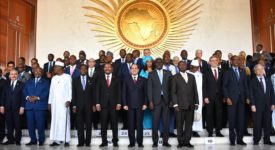Evita Schmieg (Stiftung Wissenschaft und Politik)
The vast majority of experts agree that the The Economic Partnership Agreements (EPAs) between the EU and African, Caribbean and Pacific (ACP) regions can boost sustainable development and contribute to economic growth in all these regions. Market liberalization, however, brings also certain risks such as undermining domestic production and increasing unemployment and social problems in these regions. The Economic Partnership Agreement between the EU and the Economic Community of West African States (ECOWAS) was signed at the end of June last year. The basic objective of this deal, which takes into consideration economic and social conditions in developing countries, is to support sustainable development, significantly alleviate poverty and increase living standards of the local people. By June this year, this agreement had not, however, been signed by all ECOWAS Member States.
Experts have identified a number of criteria, which they have used to evaluate the overall benefits of the Economic Partnership Agreement between the EU and the ECOWAS Member States. One of the selected criteria is a free market access for the developing partner countries. Here, the experts emphasize that the given agreement between the EU and the ECOWAS members provides a completely open access to the EU market for the partner Western African countries. Another important criterion is the existence of flexible protective clauses that make it possible to change the liberalization plans in case of possible threats that are the result of market liberalization. Also here the experts estimate that this agreement does include the necessary protective clauses. On the contrary, the criterion regarding the issue of human rights has proven to be insufficiently dealt with since the deal between the EU and ECOWAS does not include any explicit summary of human rights standards.
The final assessment of the EU-ECOWAS Economic Partnership Agreement proves that this deal really includes elements, which could turn it into a very efficient tool for the support of sustainable development in the given region. For the deal to work efficiently, it is, however, necessary that all participating countries ratify it. It is furthermore essential to introduce a monitoring system that would supervise its functionality and thus play an important role in the identification of overall successes and failures of this cooperation. If the relatively ambitious goals are to be achieved and its vast potential to support sustainable development is to be realized, it is necessary to start implementing the deal as soon as possible and continue with the talks on mutual market liberalization.
(The study can be downloaded here: http://www.swp-berlin.org/fileadmin/contents/products/arbeitspapiere/A_Short_Assessment_of_the_ECOWAS_-_EU_Economic_Partnership_Agreement.pdf)





